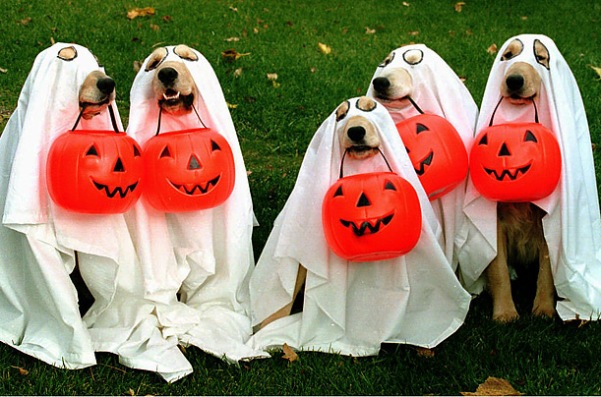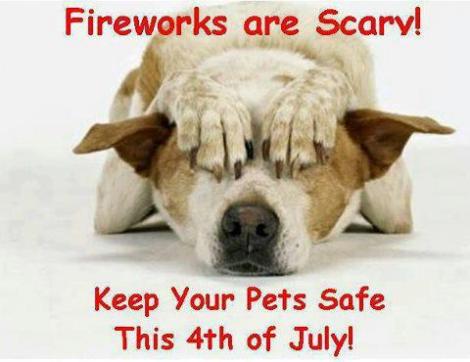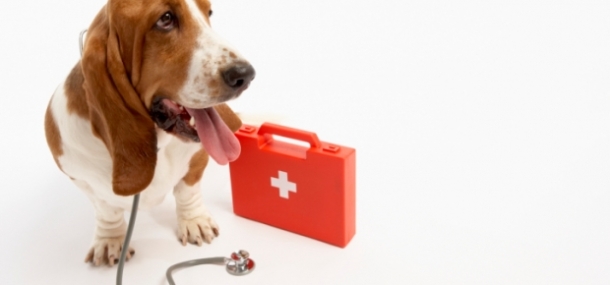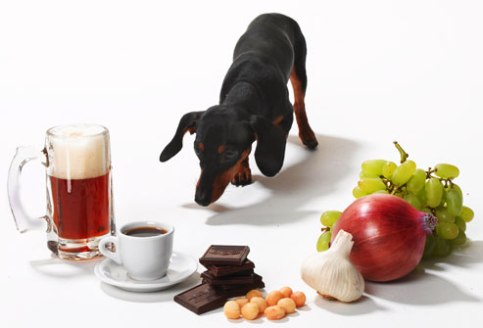It’s that time of year again! Time to put on silly costumes, put out spooky decorations, and fill buckets with lots of yummy treats! Halloween can be a lot of fun…but can also be a real nightmare for your pets! Allentown Animal Clinic reminds you to keep these safety tips in mind to avoid potential disaster.
Avoid Treats
Those buckets of yummy treats are not good for us…but even worse for Fluffy! Chocolate, raisins, and artificial sweeteners can be dangerous for pets! If you do suspect your pet may have ingested any of these contact your veterinarian immediately.
Decorations
While a flickering jack-o-lantern looks great on the porch and those spooky spiderwebs can make your house the scariest on the block they can be a potential disaster. Beware of curious pets that may burn themselves on the candles…or worse yet knock one over and start a fire! Artificial spiderwebs can be eaten, causing intestinal upset and potential blockages.
Costumes
Sure, all the neighbors will “ooh and aah” over that dachshund dressed up as a hot dog or that kitty with the halo and wings but if you are going to dress your pet up in a costume make sure it’s safe. Be sure your pet can move freely and that breathing and vision are not obstructed in any way. Be sure the costume is free of dangling pieces and potential choking hazards.
To Trick-or-Treat, or Not?
Even if your pets are normally sociable and may enjoy visitors, too many strangers coming to the house in a short time may cause unnecessary stress. Also, a scared pet may be more likely to dart out of the door. Consider keeping your pets in a quiet bedroom until trick-or-treat is over.
Trick or Treat Safety for Pets and Kids
If you decide to let your pet enjoy the trick-or-treating festivities, please keep in mind some ways to keep your pets safe!
Many children will walk into strange homes, expecting candy. What they should also expect is that many of these homes will contain pets that are not prepared to see people dressed in strange costumes. Halloween is a high risk holiday for dog bites and pet emergencies.
There are several things about Halloween that makes it more pet-unfriendly than other holidays. For one thing, most neighborhood homes will see plenty of little visitors out trick-or-treating on Halloween evening. They will be dressed in costumes that may seem strange to pets. Any dog that’s scared, stressed or anxious is at a high risk of biting or escaping through an open door. Even if your pet is usually very social and enjoys visitors, the non-stop doorbell ringing and opening of the door may be too much, even for the most social of pets!
Keep your kids safe:
Children who are out trick-or-treating must be taught to avoid unnecessary contact with dogs. Avoid eye contact with any dog. In fact, it’s best not to have much contact even with your own pet dog while in costume. According PawNation.com, dogs recognize both sight and smell, and may be confused by the familiar smell of an owner in a strange costume.
Teach your child not to try to pet strange dogs.
If your children are planning to visit homes of people you know, call them and inform them beforehand so they can arrange to have their pets confined safely.
Keep your pets safe:
People who have pets will want to take special precautions for Halloween. It’s best to confine your pet in a room during the evening. Dogs can get excited when they are near doors and gates. Open doors also provide a quick escape route for a scared cat.
Do not allow trick or treaters to feed your pets any kind of treat. Halloween can be a dangerous time for pets to be ingesting items that can make them ill.
Be sure your pets are wearing a collar and ID tags so they can be returned home safely in the event they do manage to escape during the night’s festivities.
Keep your kids and furr-kids safe this Halloween!




